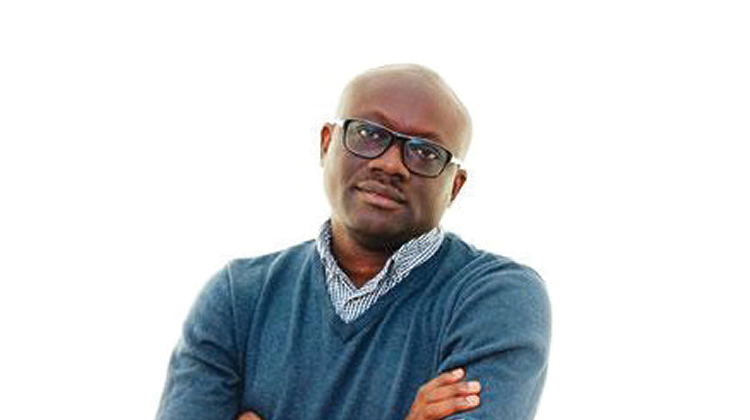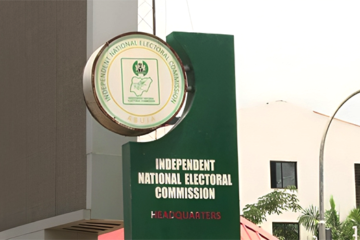[OPINION] Is Nigeria truly under a spell?

Simon Kolawole
By Simon Kolawole
In the dying days of his administration in 2007, President Olusegun Obasanjo sold 51 percent of federal government’s stakes in two of Nigeria’s four ailing refineries to Bluestar Oil Services Ltd — a consortium floated by Dangote Oil, Zenon Oil and Transcorp Plc — for $761 million. Shortly after the inauguration of a new administration, the oil industry unions — apparently prompted — kicked that Obasanjo sold the refineries to his cronies, insisted that one of the refineries alone was worth over $5 billion, and staged a four-day strike. President Umaru Musa Yar’Adua gleefully reversed the privatisation and returned the refineries to the Nigerian National Petroleum Corporation.
Alhaji Abubakar Lawal Yar’Adua, appointed the NNPC group managing director by President Yar’Adua, told the world in September 2007 that all our refineries would start working at “near full capacity” by December 2007 after “rehabilitation” which, you may want to know, cost us several billions of naira. In preparation for the magic, he said government had awarded a $52 million contract for the repair of the Chanomi Creek pipeline, the main feeder pipeline to Warri and Kaduna refineries blown up by militants in 2006. All was set for the amazing revamp of the 445,000 barrels per day (bpd) refineries, after which we would stop importing petroleum products and live together happily ever after.
What happened next? We are now in September 2023 — on the 16th anniversary of Yar’Adua’s monumental promise — and Nigeria is still waiting for the magic to happen. (As an aside, Yar’Adua was named in the Panama Papers to have secretly bought an £890,000 house in London in 2008 while serving as the NNPC GMD, using a company he registered in the British Virgin Islands — but there is nothing to see there). Sixteen years after the unions said the Port Harcourt refinery alone was worth $5 billion, no one would buy it for N5 million. Sixteen years after we bungled a major victory for local refining of petroleum products, we are still helplessly and hopelessly hooked on fuel imports.
But Yar’Adua was not alone. Every single president after him promised to get the refineries working at “near full capacity”. President Goodluck Jonathan vowed to raise the dead. Between 2013 and 2015, he reportedly spent $396 million on turnaround maintenance (TAM) — and the refineries have still not worked, although I admit that the fortune of a few individuals experienced turnaround miracles. In April 2021, Mallam Mele Kyari, the CEO of NNPC Ltd, followed the enviable tradition of his predecessors by signing a $1.5 billion contract to rehabilitate the Port Harcourt refinery. President Bola Tinubu has now customarily promised that the refineries will be back by December 2023.
In summary, 16 years after we reversed the sale of the refineries because they were bought by Obasanjo’s “cronies” and promised to get them back to “near full capacity”, we have burnt billions of dollars on TAM contracts and we are still here waiting patiently and enthusiastically for Godot. We are still promising to get the refineries to work “by December” (why always December?) and have no clue when this bizarre bazaar will be over. From the time of Gen Sani Abacha till date, all the presidents have played the same card of getting the refineries to work. It appears there is a hymn sheet at the Presidential Villa from which they all sing: the harmony is enduring and unbelievable.
But you know what? If you take a proper look at the financial and economic implications of fuel importation in Nigeria, you will find a damning explanation for some of the woes overwhelming us today. Shall we discuss the billions of dollars we have burnt on demurrage and storage charges on fuel imports since 1999 (because our ports do not have the adequate reception capacity and the NNPC does not have sufficient storage facilities)? Shall we discuss the fact that the resources we have burnt on demurrage and storage expenses over the same period could have built the biggest refineries in the world and turned us to exporters of both crude oil and petroleum products?
Does anyone ever calculate how much of our forex earnings we burn on fuel importation? This is the largest single consumer of forex today. I wonder what might have been if we had taken another route. When Obasanjo was president and we had considerable savings from oil revenue, I campaigned vigorously that we should invest in a new refinery. I was lectured by neo-liberal fanatics that government should not run a refinery, that it should be the business of the private sector. I conceded but with a request: let us build a refinery (since no investor was willing to do so), lease out the management and sell it off after some years. Let us just stop fuel importation by any means!
The cost of the decisions we took — or failed to take — yesterday is coming back to bite us hard today and threatening to pull down the already fragile economy. With dwindling oil output and export, we are currently facing a double whammy: we export little oil and spend the little income to import petroleum products because we do not refine at home. Things got so bad at a stage that we did not have enough crude to exchange for products, so we mortgaged future oil production in order to import petrol for today. We are digging one hole after the other to fill the other holes we have dug everywhere. It is difficult to understand how we do things here and expect positive outcomes.
Help me make sense of this. A farmer produces yams and sells a tuber for N2,000 to Mama Put. But because he does not have the mortar and pestle to pound the yam, he goes to the Mama Put to buy a wrap of pounded yam for N1,000. Mama Put can probably make N10,000 per tuber, selling it as pounded, fried, boiled or roasted yam, or making yam flour and amala from it. Mama Put can sell the peels as feed for goats. There are several products from yam! Now, wait for this: our farmer friend runs into a harvest problem and starts buying pounded yam on credit, promising to pay with next year’s harvest. That is Nigeria for you: selling crude oil and spending the revenue to import petrol.
The country should be exporting petroleum products — such as petrol, diesel, low pour oil fuel, and jet fuel — and earning billions of dollars, in addition to the little matter of jobs and tax revenue. We want the naira to exchange at N1/$1 (whatever the merits are) but how can you spend all your forex on importing petrol and still expect the naira not to keep losing value? What else are you exporting to earn dollars? Where are the dollars? If income from your biggest export, which used to account for 90 percent of your forex earnings, has been going down for years, what else are you doing to get more dollar inflow into your economy? It seems we are expecting the dollar to fall from heaven.
Let us go to Singapore briefly. The country is less than the size of Lagos state and has a population of 5.6 million. But we are not here to discuss land mass and population. My interest is the size of the intellect. The country does not have oil but it has some of the biggest refineries in the world with the capacity to refine 1.5 million bpd. Nigeria, one of the world’s richest in crude reserves, has been having the capacity for 445,000 bpd since 1987 and rarely refines a barrel. Singapore is regarded as Asia’s oil hub and earned $40.8 billion from exporting refined petroleum products in 2021. Yes, $40.8 billion! It is not about resource wealth or political system. It is the brain. Vision. Mission. Passion.
What more can I say? Ajaokuta Steel Mill has become a centre of stealing since it was conceived in 1979. Up till today, we have not finished stealing through Ajaokuta. If it was a country where our heads were properly screwed on our necks, we would be earning billions of dollars from exporting iron and steel, to say nothing about the jobs and the value chain in the economy. According to data by CEPII, the leading French centre for research and expertise on the world economy, China earned $61 billion from iron and steel exports in 2021. Japan earned $35 billion, Germany $32.8 billion, Russia $30.5 billion, and South Korea $28 billion. These things start from the brain. It is not magic.
Don’t let us get started with palm oil. Forget the legendary story of how an Asian country came to take palm seedlings from Nigeria some decades ago and is now a world leader in the production of the cash crop. As far as I am concerned, that is history and we should move on for Pete’s sake. The part I cannot understand for the life of me is why we keep lamenting as if lamentation ever solved any problem. There are more depressing statistics to share with us but I think we can chew on this for a while: in 2022, Indonesia earned $27.8 billion from palm oil exports alone. I am attracted by the enormous forex earnings for sure, but I am more smitten by the associated economic activities.
Let’s be frank: the solution to our economic and security challenges are hidden in plain sight. It is no rocket science. Nigeria can be one of the biggest exporters of palm oil, petrol, solid minerals, name it — if we use our brains positively. We have no business with being a net importer of petroleum products, so much so the aviation industry is sometimes paralysed because of fuel scarcity. Nigeria is the only country that experiences this constant affliction. Some things are too weird about us. That is why some think the country is under a spell. I can’t say if it is a spiritual problem because spiritual matters are above my paygrade, but I am sure that we don’t know what we are doing. We’re lost.
But when you see that some sectors are doing well — fintech and entertainment, for instance — in spite of the government, you cannot but conclude that the political leadership has questions to answer. We have a warped concept of governance. When you run a system where the unwritten code is that leadership is all about personal comfort and there are no consequences for bad behaviour, what you get is a Nigeria. We know what ails us. It’s been well diagnosed. But we have refused to take our medication: competent and patriotic leadership at all levels. Our capacity for shortsightedness and selfishness is legendary and damaging. Do I really need to spell that out again?
Culled from TheCable











